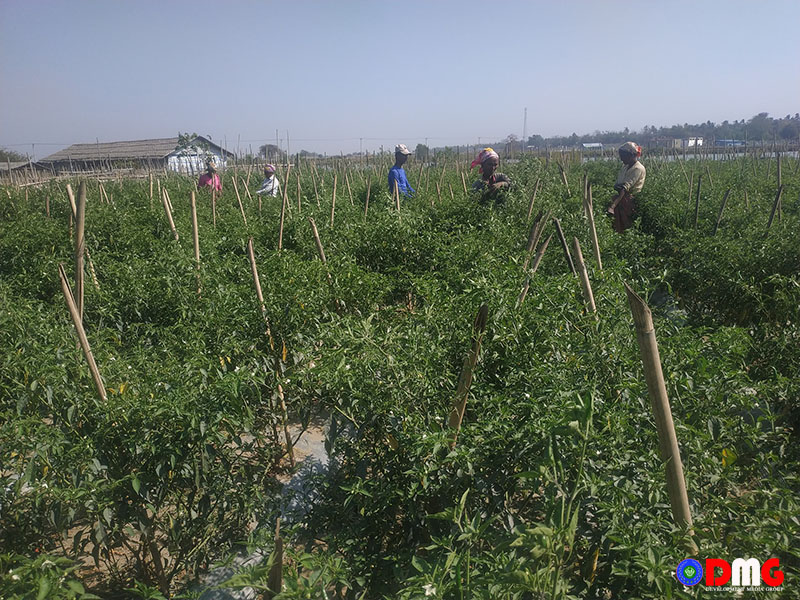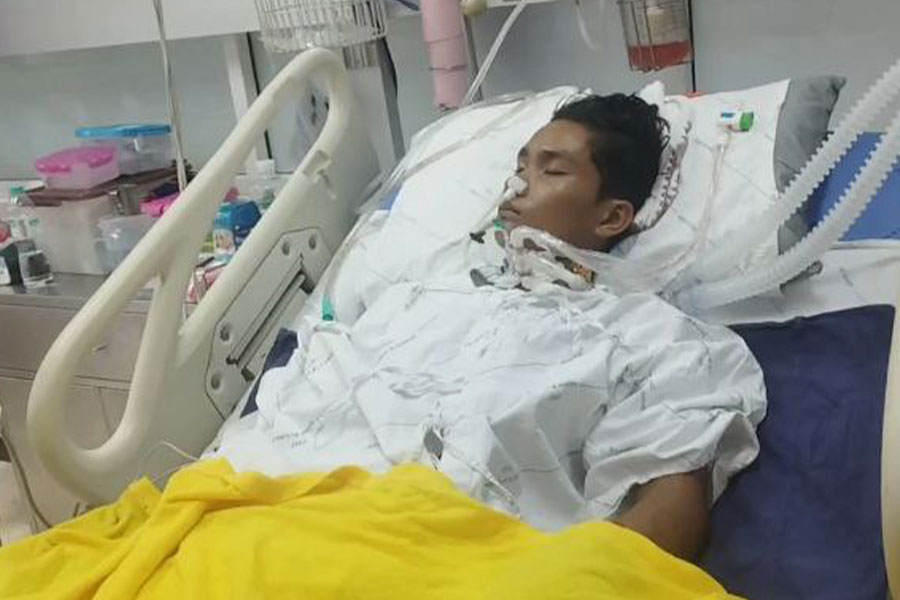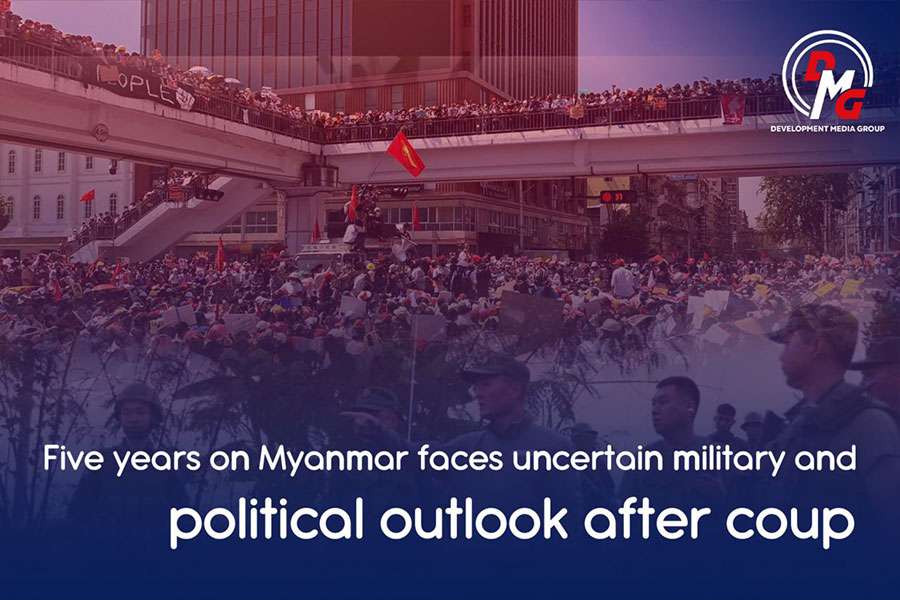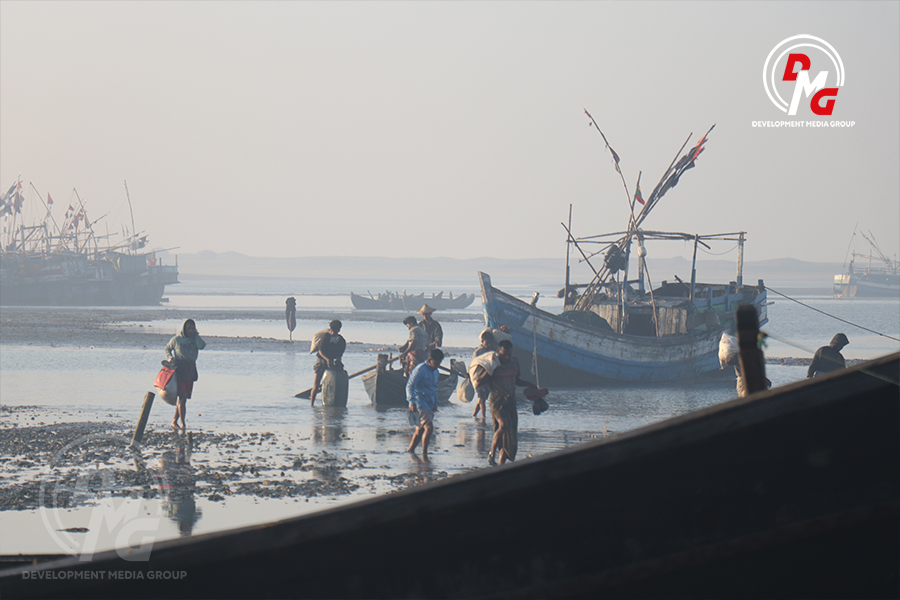- Weekly Highlights from Arakan State (Jan 26 to Feb 1, 2026)
- Arakanese youth stabbed in Mae Sot urgently needs financial aid for medical treatment
- Five years on Myanmar faces uncertain military and political outlook after coup
- Myanmar Navy detains Pauktaw fishermen and demands ransom
- Junta Airstrikes on Arakan and the Consequences for Independent Media
Non-native pepper varieties fare well during trial cultivation in Arakan State
Two varieties of pepper — Moe Htaung and Kyauksein — were grown on a trial basis in Arakan State’s Sittwe, Kyauktaw, Mrauk-U and Pauktaw townships, and a 75 percent success rate was recorded, according to growers.
01 Dec 2022

DMG Newsroom
1 December 2022, Sittwe
Two varieties of pepper — Moe Htaung and Kyauksein — were grown on a trial basis in Arakan State’s Sittwe, Kyauktaw, Mrauk-U and Pauktaw townships, and a 75 percent success rate was recorded, according to growers.
Annually, local pepper growers face limited availability of seeds for cultivation while the yield of traditionally grown varieties in Arakan State is poor, said growers.
With technical assistance provided by farming community support group Orgae Land, local growers succeeded in growing two non-native varieties of pepper, said pepper grower Daw Hla May from Aung Dine Village in Sittwe Township.
“It costs less to grow these strains than the strains traditionally grown in our area. And the yield is also higher,” she explained.
Daw Hla May said she received a profit of nearly 3 million kyats from growing one-fifth an acre of peppers at a cost of around K800,000.
Kyauksein and Moe Htaung varieties produce higher yields than indigenous pepper varieties, said U Shwe Maung, another pepper grower from Kan Chaung Village in Pauktaw Township.
“They produce high yields in both the rainy season and cold season. However, the yield may not be that good due to limited availability of water in the hot season,” he said.
Kyauksein peppers can be harvested two months after planting, and the peppers can be harvested four times per month after the plant reaches a particular stage of growth, according to growers.
Ko Ye Htun Myint, who is in charge of Orgae Land’s technical team, said the group is providing technical assistance to local farmers.
The group helped pepper growers to go organic in growing the Moe Htaung and Kyauksein varieties, he said. The agriculture industry is declining in Arakan State due to lack of technologies and market, and high costs, he added.















.jpg)

